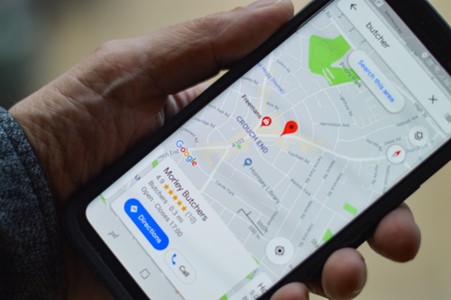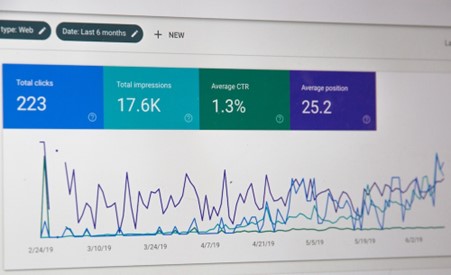Search engine optimisation, also known as SEO, is vital to any website or online business.
It’s the process of optimising your website to increase the quantity and quality of traffic to your site through organic search engine results. With billions of websites out there, it’s fundamental to ensure your website stands out from the crowd. It’s no good as a business owner to have your website sitting in a mist of smoke and mirrors; you need to stand out with a big bada boom!
As a professional freelance SEO Writer, I know how to get you seen and, more importantly, how to get the Google bots to notice you and put your site in front of your ideal clients and customers.
Here are my top 10 tips for improving your SEO today!
-
Conduct Keyword Research to Improve SEO:
The first steps in improving your SEO are to conduct keyword research. By researching the keywords and phrases your target audience will use, you can show them your products or services similar to their search.
Use tools like Google Keyword Planner, Ahrefs, Ubersuggest, Semrush, SE Ranking and more to find the best keywords for your business.
When conducting keyword research, starting with a clear understanding of your target audience and what they might be searching for is essential. Begin by mind mapping a list of relevant words and phrases, then use a keyword research tool to analyse search volume, competition, and other vital metrics.
Look for keywords in your niche with high search volume and low competition. These words are typically the most valuable for driving traffic to your website. Remember to consider long-tail keywords, which are more specific and can often be easier to rank for.
Ultimately, the goal is to choose a set of keywords that align with your business objectives and can help you be your target audience effectively.

-
SEO Optimise Your Website:
Once you have identified the best keywords, optimise your website. Your website needs to be fast, straightforward to navigate, and mobile-friendly. You need to use descriptive titles and meta descriptions for each page and use header tags to organise your content.
Optimising your website is crucial for improving its visibility and attracting more traffic to your pages.
After conducting thorough keyword research to recognise the most relevant and valuable keywords for your business and you have a list of targeted keywords, you can start optimising your website’s content, titles, meta descriptions, and other on-page essentials to include your keywords in a natural and effective way.
Additionally, consider improving your website’s load time, mobile-friendliness, and overall user experience to enhance its search engine ranking and improve user engagement. Regularly renewing your website with fresh content and building high-quality backlinks can also help boost your website’s visibility and authority in search results.

-
Create High-Quality Content for better SEO:
The content on your website should be high-quality and engaging. It should provide value to your target audience and answer their questions. Use pictures, videos, and infographics to make your content even more engaging.
Creating high-quality content can be overwhelming, but it’s not impossible.
First and foremost, it’s important to understand your audience and what kind of content they’re looking for. Once you have a good understanding of your audience, focus on creating content that is both informative and engaging.
This can include incorporating visuals, such as images or videos, to break up all the text and make it more visually appealing. Additionally, make sure to research your topic thoroughly and provide accurate and up-to-date information.
Lastly, don’t forget to proofread and edit your content to ensure it is free of errors and flows smoothly.
By following these SEO content tips, you can create high-quality content that will attract and hold your audience’s attention.

-
SEO Needs You to Build Backlinks:
Backlinks are an essential factor in SEO. Backlinks are links from other websites that point toward your site. The more high-quality backlinks your site has, the higher your site will rank in all search engine results or SERPs.
Building backlinks in your content is a crucial aspect of increasing your website’s visibility and improving your search engine rankings.
One effective way to build backlinks is to construct high-quality content that other websites will want to link to. Your content can include informative blog posts, research studies, infographics and more. This is a great strategy and proves your worth as an industry leader. It establishes your credibility and professional worth to a vast and broad audience.
Additionally, participating in online communities and forums linked to your industry can help you build working relationships with website owners, potentially leading to backlinks.
Remember, the key is creating valuable online content that other people naturally want to link to.

-
Use Social Media to increase SEO:
Social media is a tremendous tool for improving your SEO. It gives you the ability to share your content across social media platforms like Facebook, Instagram, and LinkedIn, which will help increase site traffic and build your brand.
Incorporating social media into your SEO strategy can significantly improve your online presence. It would help if you started creating profiles on popular social media platforms where you think your target audience will likely find you. Make sure to use keywords relevant to your business in your profile descriptions.
You should share valuable content on your social media pages regularly, such as blog posts, articles, and infographics. This will not only attract followers but also improve your search engine rankings.
Encourage your followers to interact with your content by using CTAs, asking questions, and responding to comments.
Finally, include social media sharing buttons on your site to make it easy for readers to share your content on their own social media pages. By following these SEO social media tips, you can influence the power of social media to enhance all your SEO efforts.

-
Optimise for Local SEO Search:
If you have a local business, optimise your website for local search. Use local keywords and add your business to Google My Business. This will help to increase your local visibility and attract more customers.
Optimising your local search is crucial for improving your SEO.
Start by stating your business listing on Google My Business, and make sure to provide accurate information such as your business address, phone number, and hours of operation.
You can add photos and videos to your Google listing to make it more engaging for potential customers. It is also beneficial to ask your customers to leave positive reviews on your Google My Business page, as positive reviews can greatly improve your search engine rankings.
Make sure to include location-specific keywords throughout your website, such as your city or state, to help Google understand where your business is located.
Finally, consider creating location-specific landing pages for each of your business locations to improve your visibility in local search results. By optimising your local search, you can increase your chances of being seen by prospective customers in your area.

-
Use Google Analytics for SEO:
Use tools to understand your site’s analytics, like Google Analytics, to track your website’s traffic. You can monitor your SEO performance and help you identify areas needing improvement so you can make changes accordingly.
Google Analytics is powerful and allows you to track and analyse your website’s traffic and user behaviour.
Create a Google Analytics account and add the tracking code to your site. The code will collect data about your website visitors, such as their location, device, and behaviours.
Use the dashboard to view your website’s performance metrics, including traffic sources, bounce rate, and conversion rates.
Set up goals to track specific actions on your site, such as form submissions or purchases. You can use the audience reports to understand your website’s visitors, such as their demographics and interests.
With this information, you can make data-driven decisions to improve your website’s user experience and drive more conversions.

-
Optimise Images to Improve SEO:
When it comes to SEO, image optimisation plays a crucial role. Search engines favour websites that have images optimised for speed and relevance.
By compressing the images on your website and reducing their file size, your site loads faster, which is a ranking factor for all search engines.
Additionally, optimising the images helps search engines understand the context of the whole page and the content it contains. This, in turn, can improve the website’s overall ranking and increase traffic and engagement.
Overall, image optimisation is a critical aspect of SEO that should not be overlooked.

-
Use Google Search Console for Better SEO:
Use Google Search Console to observe your website’s performance in Google search results. This tool will help you identify any website issues and make improvements.
Google Search Console is invaluable for improving your website’s SEO. It provides an understanding of how your website performs in search results, alerts you to any issues or errors on your site, and allows you to submit sitemaps and individual URLs for crawling.
One of the vital features of Google Search Console is the ability to see what keywords and questions drive traffic to your site and the click-through rate for each.
This information can help you optimise your content and meta descriptions to target your audience better and improve your rankings.
Also, Google Search Console can help you identify any technical issues on your website. This can be things like broken links or mobile usability problems that may negatively impact your SEO. By regularly monitoring and using the insights from Google Search Console, you will be able to make informed decisions about improving your website’s search visibility and gaining more traffic to your site.

-
Be Patient for Improved SEO:
Improving your SEO takes time and effort. Don’t expect overnight results. Be patient and consistent in your efforts; you will see results over time.
It can take time for search engine bots to crawl and index your website, and it can take even longer to see the results of your optimisation efforts.
It’s important to remember that SEO is a long-term strategy. It requires consistent effort and dedication to see meaningful results. Rushing the process or trying to cut corners can result in penalties from Google and harm your rankings.
By being patient and focusing on creating high-quality, valuable content that meets the needs and expectations of your audience, you can steadily improve your SEO over time and build a strong, sustainable online presence.

Improving Your SEO Is Essential for Online Business Success
By following these top 10 tips, you can increase your website traffic, improve your search engine rankings, and attract more customers.
Remember to be patient and consistent in your efforts, and you will see results over time, and so will you and your business.
Find a Professional Freelance SEO Writer
Are you ready to take your website’s SEO to the next level?
Let’s work together to create a comprehensive, long-term strategy that will drive traffic, boost rankings, and build your online presence.
With my expertise and your dedication to creating high-quality content, we can achieve meaningful results that will benefit your business for years to come.
Contact me today to get started on optimising your website for success!
Read My Other SEO Content and SEO Copywriting Blogs
Welcome to Your New Freelance SEO Writer: Jennifer Page, AKA, The Digital Writer
